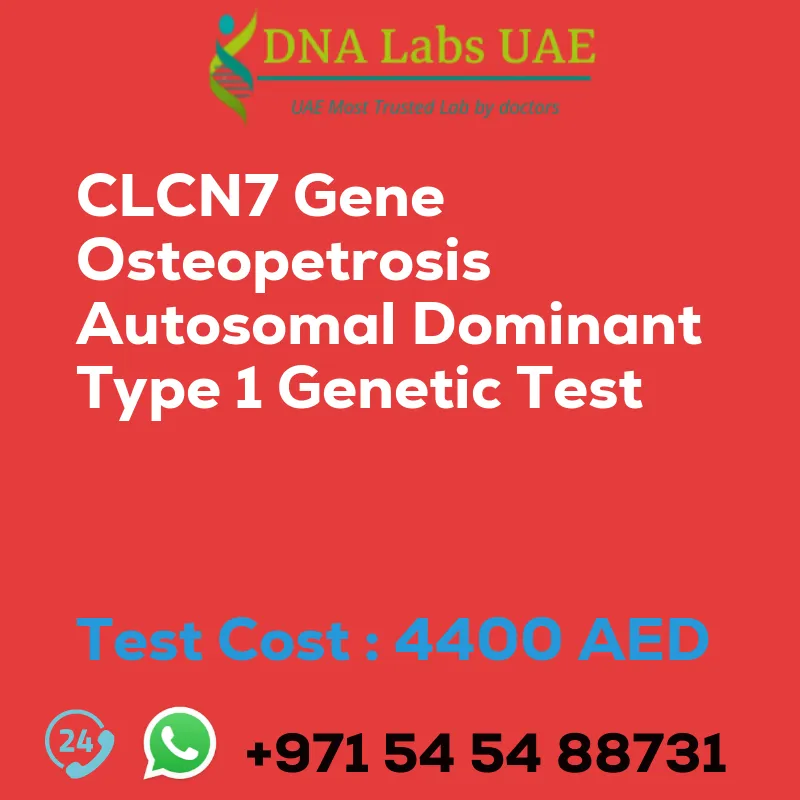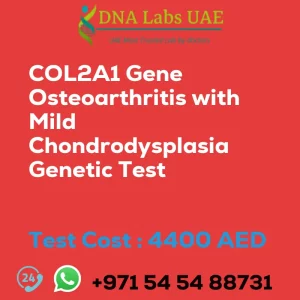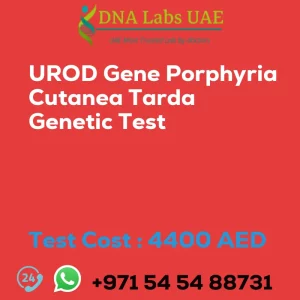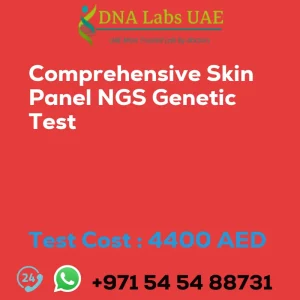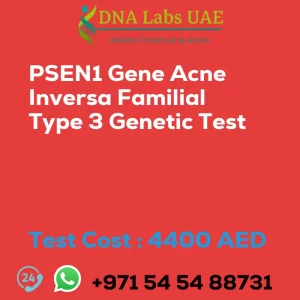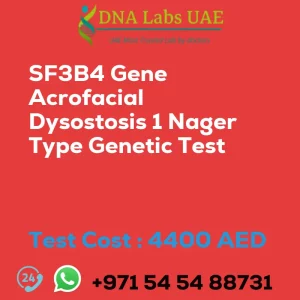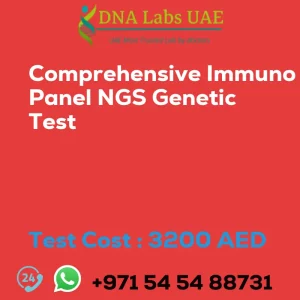CLCN7 Gene Osteopetrosis autosomal dominant type 1 Genetic Test
At DNA Labs UAE, we offer the CLCN7 Gene Osteopetrosis autosomal dominant type 1 Genetic Test at a cost of AED 4400.0. This test is designed to diagnose osteopetrosis, autosomal dominant type 1 by analyzing the CLCN7 gene for any mutations or variations.
Test Details
The CLCN7 gene is associated with osteopetrosis, autosomal dominant type 1, a rare genetic disorder characterized by abnormal bone growth and density. Individuals with this condition have an increased susceptibility to fractures and other skeletal abnormalities.
Our NGS (Next-Generation Sequencing) technology allows for the simultaneous analysis of multiple genes, including the CLCN7 gene. By identifying mutations or variations in the CLCN7 gene, this test can provide valuable information about the specific genetic variant causing osteopetrosis, autosomal dominant type 1.
Test Components and Price
The CLCN7 Gene Osteopetrosis autosomal dominant type 1 Genetic Test is priced at AED 4400.0. The sample condition required for this test can be either blood, extracted DNA, or one drop of blood on an FTA card.
Report Delivery
The report for this genetic test will be delivered within 3 to 4 weeks.
Test Method
We utilize NGS technology for the CLCN7 Gene Osteopetrosis autosomal dominant type 1 Genetic Test.
Test Type and Doctor
This test falls under the category of Osteology Dermatology Immunology Disorders and is performed by a Dermatologist.
Test Department
This test is conducted in our Genetics department.
Pre Test Information
Prior to undergoing the CLCN7 Gene Osteopetrosis autosomal dominant type 1 NGS Genetic DNA Test, it is important to provide the clinical history of the patient. Additionally, a genetic counseling session will be conducted to draw a pedigree chart of family members affected by CLCN7 Gene Osteopetrosis, autosomal dominant type 1.
Importance of Genetic Testing for Osteopetrosis, autosomal dominant type 1
Genetic testing for osteopetrosis, autosomal dominant type 1 should be performed by a qualified healthcare professional or genetic counselor. The results of the test can help diagnose the condition and provide valuable information about the specific genetic variant causing it. This information is crucial for determining appropriate treatment and management strategies for affected individuals and their families.
| Test Name | CLCN7 Gene Osteopetrosis autosomal dominant type 1 Genetic Test |
|---|---|
| Components | |
| Price | 4400.0 AED |
| Sample Condition | Blood or Extracted DNA or One drop Blood on FTA Card |
| Report Delivery | 3 to 4 Weeks |
| Method | NGS Technology |
| Test type | Osteology Dermatology Immunology Disorders |
| Doctor | Dermatologist |
| Test Department: | Genetics |
| Pre Test Information | Clinical History of Patient who is going for CLCN7 Gene Osteopetrosis, autosomal dominant type 1 NGS Genetic DNA Test. A Genetic Counselling session to draw a pedigree chart of family members affected with CLCN7 Gene Osteopetrosis, autosomal dominant type 1 NGS Genetic DNA Test gene CLCN7 |
| Test Details |
The CLCN7 gene is associated with a condition called osteopetrosis, autosomal dominant type 1. Osteopetrosis is a rare genetic disorder characterized by abnormal bone growth and density, leading to increased susceptibility to fractures and other skeletal abnormalities. NGS (Next-Generation Sequencing) genetic testing is a type of genetic testing that allows for the simultaneous analysis of multiple genes. In the case of osteopetrosis, an NGS genetic test can analyze the CLCN7 gene to identify any mutations or variations that may be present. By identifying mutations in the CLCN7 gene, NGS genetic testing can help diagnose osteopetrosis, autosomal dominant type 1 and provide information about the specific genetic variant causing the condition. This information can be useful for determining the appropriate treatment and management strategies for affected individuals and their families. It’s important to note that genetic testing for osteopetrosis, autosomal dominant type 1 should be performed by a qualified healthcare professional or genetic counselor who can interpret the results and provide appropriate guidance and support. |

